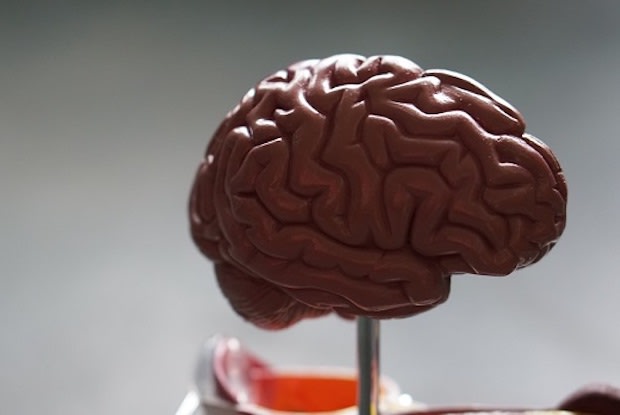Table of Contents
I. What is Erectile Dysfunction?
II. Causes of Erectile Dysfunction
What is Erectile Dysfunction?
a. Overview
Erectile dysfunction (ED) is also known as impotence and is a very common condition. It affects around 40 percent of men aged 40 and almost 70 percent of males aged 70. Erectile dysfunction also affects younger men, affecting approximately 25 percent of men under 40. [1]
Erectile dysfunction is a condition that prevents a male from getting or maintaining an erection that is firm enough to have sexual intercourse.
The failure to get an erection is not unusual. If this occurs less than 20 percent of the time, then it usually does not require treatment. However, if the failure to achieve an erection occurs more than half of the time, then it may require treatment. In this case, you may be prescribed the Viagra pill. You can save money on your ED prescriptions by using an online pharmacy like Canadian Pharmacy Service to order Viagra or Cialis online. [2]
Erections are caused by blood flowing through penile arteries and filling two chambers inside the penis, causing the penis to grow rigid. This is typically stimulated by direct contact with the penis or through sexual thoughts. Sexual excitement causes the muscles in the penis to relax, allowing an erection. There are many erectile dysfunction causes, which can include both emotional and physical factors. ED may be caused by one of these factors or by multiple factors. Physical causes may cause up to 90 percent of persistent erectile dysfunction in over 50s. [2] Achieving an erection is a complicated process that involves hormones, blood circulation, the brain, the muscles and the nerves. Erectile dysfunction can result from a problem with any of these areas. There are a high number of medical conditions that may lead to erectile dysfunction. High blood pressure is a frequent cause of ED. High blood pressure prevents enough blood from flowing into the penis to cause an erection. High blood pressure medications may also contribute to erectile dysfunction as a side effect. Diabetes can also be a common cause of ED. Men with both type 1 and type 2 diabetes are more likely to suffer from erectile dysfunction, especially when they have high blood sugar. For men with diabetes, controlling blood sugar is a key way to improve ED. Heart conditions may also lead to ED. Occasionally, erectile dysfunction may be an early sign of heart problems. ED testing often includes heart exams to test for additional heart problems. The brain is a very important part of achieving an erection. Mental health conditions, such as anxiety or depression, may affect feelings of sexual excitement. This can also occur if you are under mental stress. These may cause your brain to struggle to create nerve connections and release the appropriate hormones. It is important to understand and disregard any myths about erectile dysfunction, like the connection between erectile dysfunction and age. ED is not only for old men and can affect men of all ages. Emotional, rather than physical, causes of erectile dysfunction are more likely in younger men. The primary reason for erectile dysfunction in middle-aged males is due to personal and professional stress. Psychological erectile dysfunction, including anxiety and nervousness, can affect around 9 in 10 teenagers and young men. These events tend to be short-term. [3] A common risk factor for erectile dysfunction is increasing age. As a male becomes older, he may find it more difficult to get or keep an erection. Additionally, more stimulation may become necessary to get an erection. Another risk factor for erectile dysfunction is obesity. Research shows that 79 percent of men that were considered overweight or obese had erectile problems. [4] This factor is reversible. Exercising more and losing weight can help erections to improve. Doctors can help to put together a diet or exercise plan when needed. Research shows that there is a link between erectile dysfunction and smoking. Tobacco use can restrict blood flow around your body including to the penis. When tobacco is used over a long period of time, it may result in health conditions that cause erectile dysfunction. This factor is also reversible and stopping smoking should see an improvement in their ability to get and maintain an erection. Some medications may contribute to erectile dysfunction. This includes both prescription and over-the-counter medications, particularly antidepressants, blood pressure medications and prostate medications. Overuse of alcohol and recreational drugs such as marijuana may also cause ED symptoms. Erectile dysfunction treatments depend on the cause of ED. In order to determine the best possible treatment, doctors may perform several tests. These tests can include physical exams to check the heart, lungs, blood pressure, testicles, penis and prostate. Testing may also include a questionnaire about symptoms and sexual history to evaluate the severity of the ED. Other additional tests may include blood tests, urine tests or an ultrasound to check for other underlying conditions. There are many different erectile dysfunction medications available and a lot of them are very well known. But how does Viagra work? Most ED medications work by relaxing the muscles in the walls of the blood vessels, which increases blood flow to particular body areas, including the penis. However, each medication will affect people slightly differently. It is common to try several different prescription ED medications in order to find which is most effective without causing side effects. Some of the most common oral erectile dysfunction medications include: Taking any of these medications will not automatically trigger an erection, but will increase the chance of an erection when sexually stimulated. As well as these oral medications, there are other medications available such as the injected medication Caverject Impulse. As well as taking medication, lifestyle changes may also improve sexual functionality by lowering risk factors for ED. Obesity is a common risk factor for erectile dysfunction. Eating a healthy diet and exercising regularly may help to improve ED. Substance use is another risk factor for erectile dysfunction. Quitting smoking and only drinking alcohol in moderation may also help. When erectile dysfunction is caused by a psychological factor such as stress, depression or anxiety, then talk therapy treatment may be beneficial. This treatment is most effective when it also involves the man’s sexual partner. Therapy involving the partner improves the problem more than half of the time. Another treatment for ED is the use of a penis pump. This may allow a male to maintain an erection for 30 minutes. The content in this article is intended for informational purposes only. This website does not provide medical advice. In all circumstances, you should always seek the advice of your physician and/or other qualified health professionals(s) for drug, medical condition, or treatment advice. The content provided on this website is not a substitute for professional medical advice, diagnosis or treatment.
b. What Causes an Erection?
Causes of Erectile Dysfunction
a. Physical Causes
b. Emotional Causes

c. Risk Factors
d. Medication Side Effects
Erectile Dysfunction Treatments
a. Medications
b. Lifestyle Changes

c. Other Treatments
